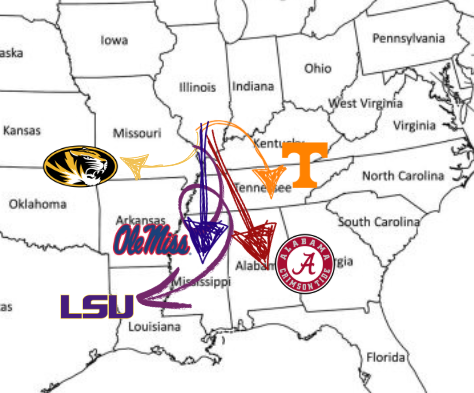Fighting For Freedom of Weed
January 11, 2018
A new America under the Trump administration has a new view of the legalization of marijuana nationally as of Jan. 4, and states which have already evaluated the safety of the drug may have to change their laws.
According to The New York Times, Attorney General Jeff Sessions has been against the legalization of marijuana. He said marijuana is a “dangerous drug.”
California permitted the drug as recreational as of Jan. 1, making it the sixth state to have done so behind Alaska, Colorado, Nevada, Oregon and Washington.
Due to its recent legalization, California’s Atty. Gen Xavier Becerra spoke on behalf of the pot businesses to the Los Angeles Times.
“In California, we decided it was best to regulate, not criminalize, cannabis. Unlike others, we embrace, not fear, change. After all, this is 2018, not the 20th century,” Becerra said. “At the California Department of Justice we intend to vigorously enforce our state’s laws and protect our state’s interests.”
California plans for a huge industry of the drug.
A huge pro to the recreational use of pot is the tax that can be placed on the drug. California is expected to generate $7 billion from the industry, according to the Los Angeles Times.
Colorado began its pot industry in early 2014. Since then revenue and taxes has had a steady increase, according to a CNN article titled: “Colorado passes a milestone for pot revenue.”
“VS Strategies, a pro-legalization research company in Denver, says the state has pulled in $506 million since retail sales began in January 2014.” CNN reporter Aaron Smith wrote in his article. “That includes taxes and fees from medical marijuana, which was legalized years earlier, but the vast majority of the revenue came from recreational.”
As for Illinois, medicinal marijuana has been legal since 2013 but the first dispensary came in 2015. The Chicago Tribune predicts Illinois will eventually have recreational pot.
“States with fiscal strains — Illinois being a prominent example — stand to gain from allowing recreational pot in a host of ways.” said Steve Chapman of the Chicago Tribune, ‘First, they don’t have to spend so much money arresting, trying and incarcerating users and sellers. Second, they get a windfall from taxing a product that previously sold only on the black market. Washington’s cannabis taxes bring in about $250 million a year.”











